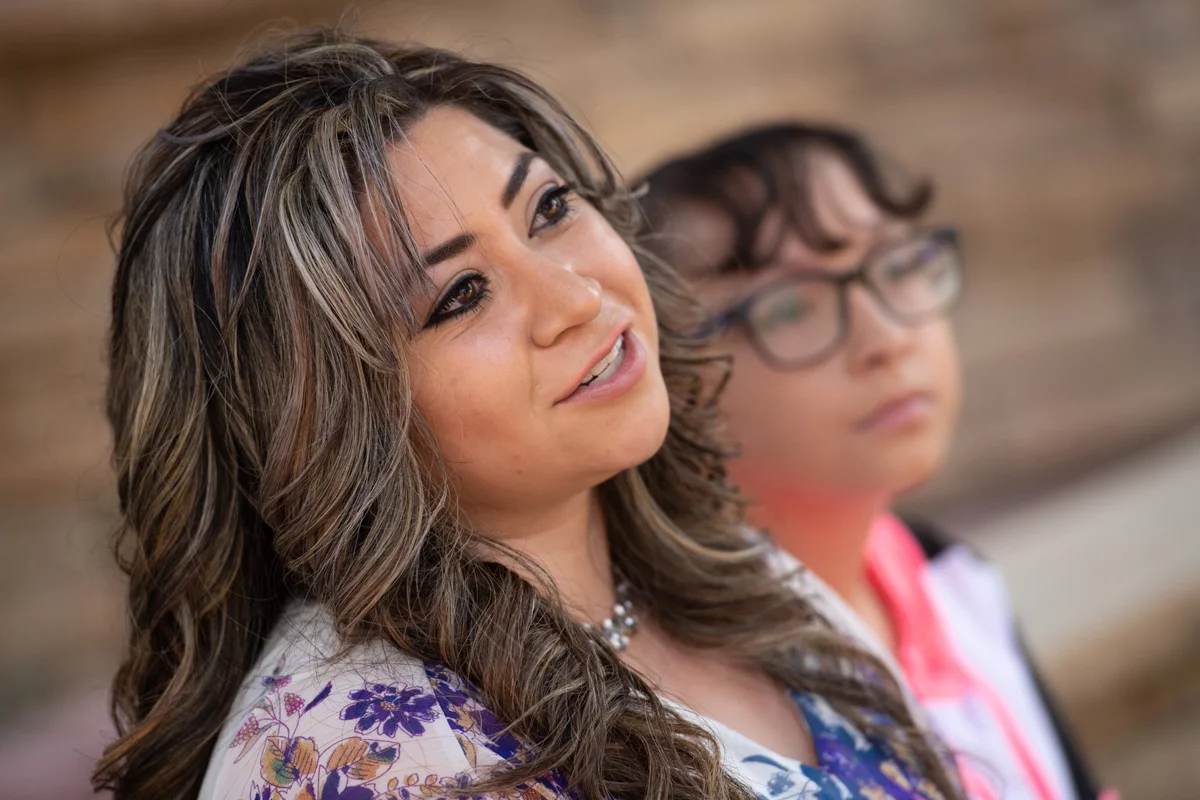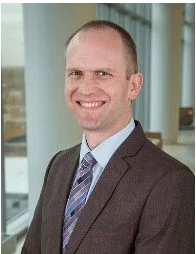There’s much to learn from Angela Lucero.
Children fortunate enough to have her as their elementary school teacher in the coming months are bound to grasp more than their ABCs from Miss Lucero. If they listen closely, they’ll learn how to achieve a high grade point average and valuable life lessons.

They’ll learn something about mystery, too. Perhaps one day, a student will discover more about the rare brain tumor that Miss Lucero had — one that most doctors in Colorado never see, and one that likely hasn’t been seen here since the early 1980s.
Miss Lucero has a child of her own, Larai, who is now 12 and wise beyond her years. When she first went to Goodnight School in Pueblo, her mom volunteered to help out in the school.
“I just loved getting down on the floor and teaching the kids,’’ Angela said. “I loved their energy and their innocence.’’

The experience propelled Angela toward a career in teaching. She enrolled at Pueblo Community College so she could knock out her pre-requisites and then she’d move on to Colorado State University – Pueblo, for elementary education courses.
She had a plan and a dream.
The first semesters at PCC invigorated Angela. She loved the course work and the instructors though it was about that time when she noticed her eyes were sensitive to the bright headlights of oncoming cars. She didn’t give it much attention.
While driving to Denver on March 24, 2015, though, Angela had a serious accident, rolling her car several times on E-470 near Mississippi Boulevard. An ambulance rushed her and Larai, a passenger in the car, to an Aurora hospital where Angela had multiple MRIs.
“I had the worst headache of my life,’’ Angela said. Still, nothing was found.
A month later, Angela could not ignore the “black flakes’’ that floated in her vision. She went to a Pueblo eye doctor, who told her that her nerves were swollen and she needed an MRI immediately. She was sent to a Pueblo hospital and the MRI revealed what doctors termed an “abnormality.’’ They believed she had a colloid cyst and scheduled emergency surgery to relieve pressure on Angela’s brain from hydrocephalus, water on the brain. They placed a shunt in her head and referred her to UCHealth University of Colorado Hospital on the Anschutz Medical Campus.

In July 2015, she met Dr. D. Ryan Ormond, a preeminent neurosurgeon and director of the UCHealth University of Colorado Hospital Brain Tumor Program, on the Anschutz Medical Campus. Upon further review of previous MRIs, Dr. Ormond diagnosed Angela with a brain tumor, not a colloid cyst, which is a benign cystic mass that typically grows at the front of the third ventricle.
The 2.7-centimeter papillary tumor was found deep within the brain in the pineal region, where brainstem compression and obstructive hydrocephalus can occur and be life threatening.
“Very little is understood about these tumors,’’ Dr. Ormond said. “Nationally, they are very uncommon, with only several dozen ever reported in the literature. They are rare enough that their actual incidence is unknown.’’
Dr. Ormond scheduled surgery to remove the tumor in December 2015. During this time, Angela never missed a day of school, and she continued to earn excellent grades in her courses.
In addition to the rare diagnosis, the highly complex surgery — a suboccipital craniotomy and microscopic resection of the tumor through an infratentorial, supracerebellar approach – is performed only at major neurosurgical centers in the United States.
The complete tumor removal – a complex surgery — lasted about 12 hours. Afterward, Angela spent a few days in the ICU, but recovered well. She then endured five rounds of radiation, because most tumors like hers come back without radiation therapy.
She has then had serial imaging to make sure that the tumor didn’t come back. On one such visit in October 2016, Angela obtained an MRI after clinic and was on her way home from Denver to Pueblo when Dr. Ormond called. “You need to come back right away,’’ he told her.

Dr. Ormond told Angela that her ventricles were “huge’’ and could cause serious complications at any moment. The shunt that had been placed a few years before at the Pueblo hospital was failing. By the time she returned to the hospital, she was losing consciousness, and emergent surgery was necessary. However, instead of simply replacing the shunt, Dr. Ormond planned a minimally-invasive endoscopic procedure called an endoscopic third ventriculostomy (ETV). This would allow her hydrocephalus to be treated successfully without the need of a shunt, a type of minimally invasive procedure performed more by Dr. Ormond than most other neurosurgeons in the state. With a small incision behind her hairline, Dr. Ormond successfully performed the ETV and Angela was able to have her shunt removed without any additional problems with hydrocephalus.
“Dr. Ormond saved my life more than once – the first time when he discovered the brain tumor; the second time when the shunt failed,’’ Angela said.
“I call him a wizard,’’ she said. “He really is my guardian angel here on earth, and I could not ask for a better neuro team than they are at University.”
A recent MRI showed no evidence of residual disease in Angela, and she is going on three years tumor free.
“Angela’s wonderful spirit and determination help dramatically when a patient is faced with such difficult challenges,’’ Dr. Ormond said. “Recovery is faster and more successful, and it often leads to more successful outcomes and longer survival.
Though she will require frequent scans of her brain, Angela does not feel sorry for herself or ask “why me?’’
“People say that it is traumatic but it’s really humbling,’’ Angela said. “Honestly, it grounded me. It reinforced for me that not a single one of us is invincible and life can be taken from us in a matter of seconds.
“When there is no other choice, you have to be strong and you have to persevere,’’ Angela said. “Without the neuro team, I don’t know if I would have been as strong as I was because they leveled with me. They told me from the get-go, this is rare. We don’t know. So I had to go with what I had.’ ”

Throughout the ordeal, Angela’s sister, Gina, and her daughter, Larai – and the whole family — have been at her side.
“She’s my rock,’’ Angela said of her daughter, who has excelled in her studies at Goodnight School, where she is in sixth grade.
At only 12 years of age, Larai has seen the inside of hospitals far more than other kids her age. She has learned lessons that belie her years.
“Life isn’t easy and you have rough patches all the time,’’ Larai said. “My mom is the strongest person that I have ever seen. She kept going to school every single day, and I’m really proud of her.’’
For now, Larai has a desire to grow up to be a neurosurgeon because she is so inspired by Dr. Ormond.
“It is great to hear of Angela’s daughter’s interest in neurosurgery. We need more good people to choose neurosurgery to help make a difference for people like Angela,’’ Dr. Ormond said.
Despite having had a rare brain tumor, Angela maintains a 4.0 GPA – straight As. She has one more semester at CSU-Pueblo and in the spring, Angela will begin student teaching. She’ll get down on the floor with the kids, and marvel at their enthusiasm and innocence.
She will teach them so much.
